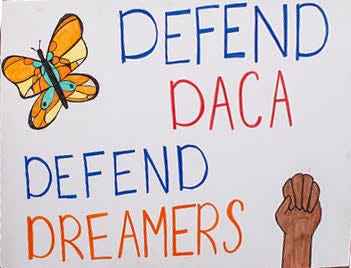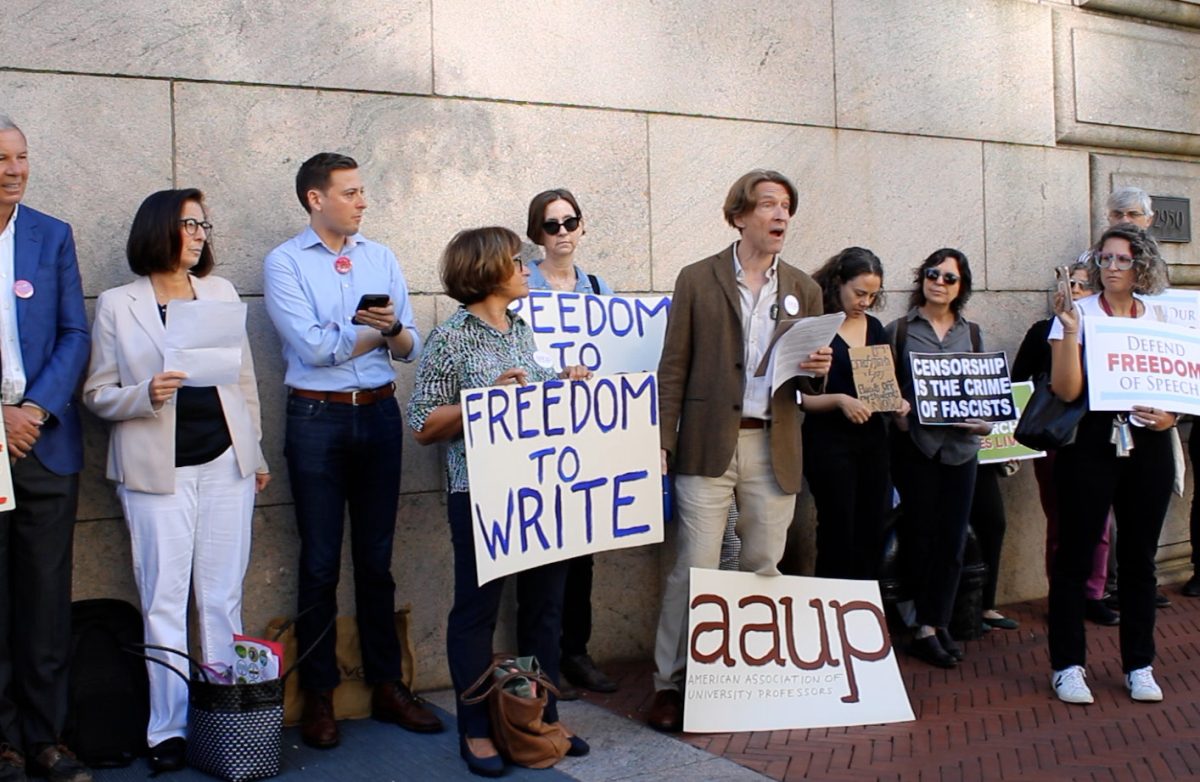
On September 5 2017, President Trump and Attorney General Jeff Sessions jointly announced the decision to rescind the Deferred Action for Childhood Arrivals (DACA) program, to be enforced within six months. DACA is an Obama-era program, launched in 2012, that seeks to protect undocumented immigrants who entered the United States before the age of 16.
They are temporarily provided immunity from deportation under a protection called “deferred action,” provided that they meet the program’s requirements. This decision stands to impact the nearly 800,000 young people, or “dreamers,” who are protected under DACA, in addition to those whose application for the program is currently pending.
During the election, Trump repeatedly promised his base that he would end DACA within his first month of office. Trump justified his decision on the concern that “millions of Americans” had been “victimized by this unfair system.” He faulted DACA recipients for “den[ying] jobs to hundreds of thousands of Americans,” depressing wages, and breaking the law.

Despite these claims that DACA recipients are siphoning resources from American citizens, the reality is that they are ineligible for most governmental social benefits, most notably including Section 8 Housing, Medicaid, Welfare, food stamps, and the Affordable Care Act.
Moreover, this subset of immigrants is economically productive, such that their removal from the workforce, as reported by CNBC, would result in the loss of $433 billion over the next ten years.
Just hours after the announcement, protests emerged in front of the White House and Justice Department; these were populated by individuals from both major parties, who were of the opinion that this decision was jeopardizing the future of young immigrants, and could also have adverse economic effects.
Trump, in response to this blowback, published a tweet encouraging Congress to “legalize DACA” through the form of new legislation; if this issue is not addressed in the next six months, Trump promised to “revisit this issue,” without furnishing any further specifics as to what this involvement would entail.
Unless Congress codifies the principles of DACA into new legislation, those currently protected under it will lose their recipient status, and will be eligible for deportation.
In order to receive DACA benefits, immigrants were required to provide the government with a massive amount of personal information, which could now be used to deport them. In addition to being subject to immigration enforcement, affected individuals will be unable to renew their work permits.
Although loss of status will not impact their ability to apply to state colleges, students have no such security at private schools, which reserve the right to choose to deny them. As per Hamilton, President David Wippman assuaged students’fears when he announced that the school will not be changing its admissions policy.
Both on and off campus, the response to the proposed rescission of DACA has been vociferous. Protests have erupted in major cities across the country, such as Denver, D.C., and L.A., to name a few. University students in Colorado — which is home to 17,000 DACA recipients — walked out of classes in a show of solidarity with these young immigrants.
DACA supporters also collectively sat in front of the U.S. Immigrations and Customs Enforcement in protest.
In Utica, a rally was held in the Oneida Square Roundabout. Presidents of the NY6 — a consortium of 6 liberal arts colleges within Upstate NY, comprising Colgate University, Union College, St. Lawrence University, Skidmore College, Hobart and William Smith Colleges, and our very own Hamilton College — issued a joint letter to U.S.
Senators Schumer and Gillibrand and U.S. Representative Tenney enjoining them to “support swift legislative action to codify the principles of DACA…” On Wednesday, September 6, 15 states and the District of Columbia sued the federal government with a Due Process and Equal Protection claim, in addition to a variety of Administrative Procedure Act claims.
On campus, the show of support for affected individuals and their families has been overwhelming. Over 1,100 students, faculty members, alumni, and other staff have signed a petition to make Hamilton a sanctuary campus — a protection which, while emotionally meaningful, provides no legal protections.
President Wippman put out a statement in which he reaffirmed the administration’s commitment to all students, regardless of their immigration status.
He pledged that the College has and will not disclose information about its students immigration statuses, nor will it “assist with the enforcement of immigration laws against members of the campus community.”
The Black and Latinx Student Union is sponsoring an event on Friday, September 8 in the Sadove Living Room to generate dialogue about the consequences of DACA’s termination and to provide support to those faced with the prospect of losing their DACA recipient status.
At this time, students in need of legal and other resources can consult the Hamilton website.

















